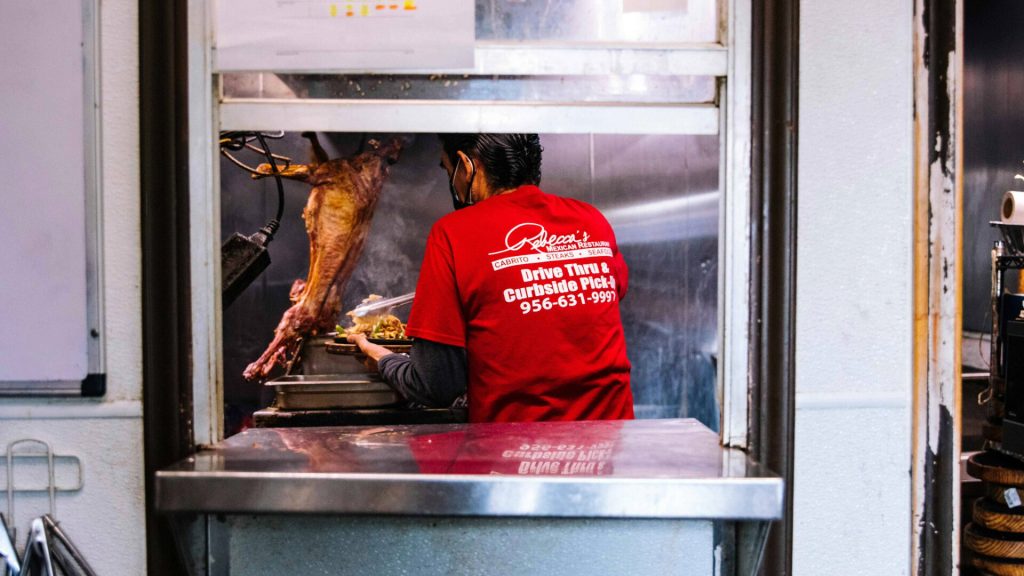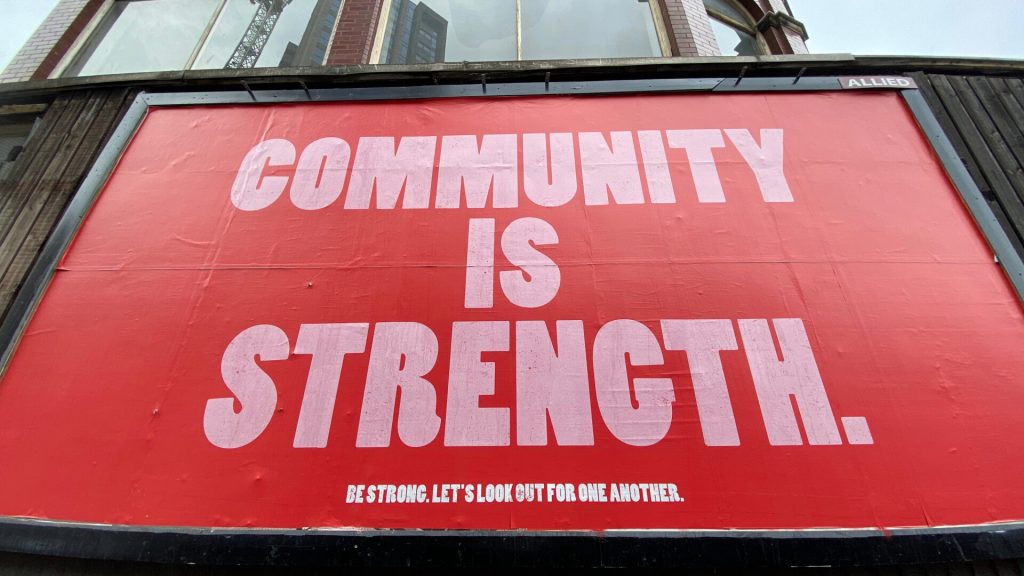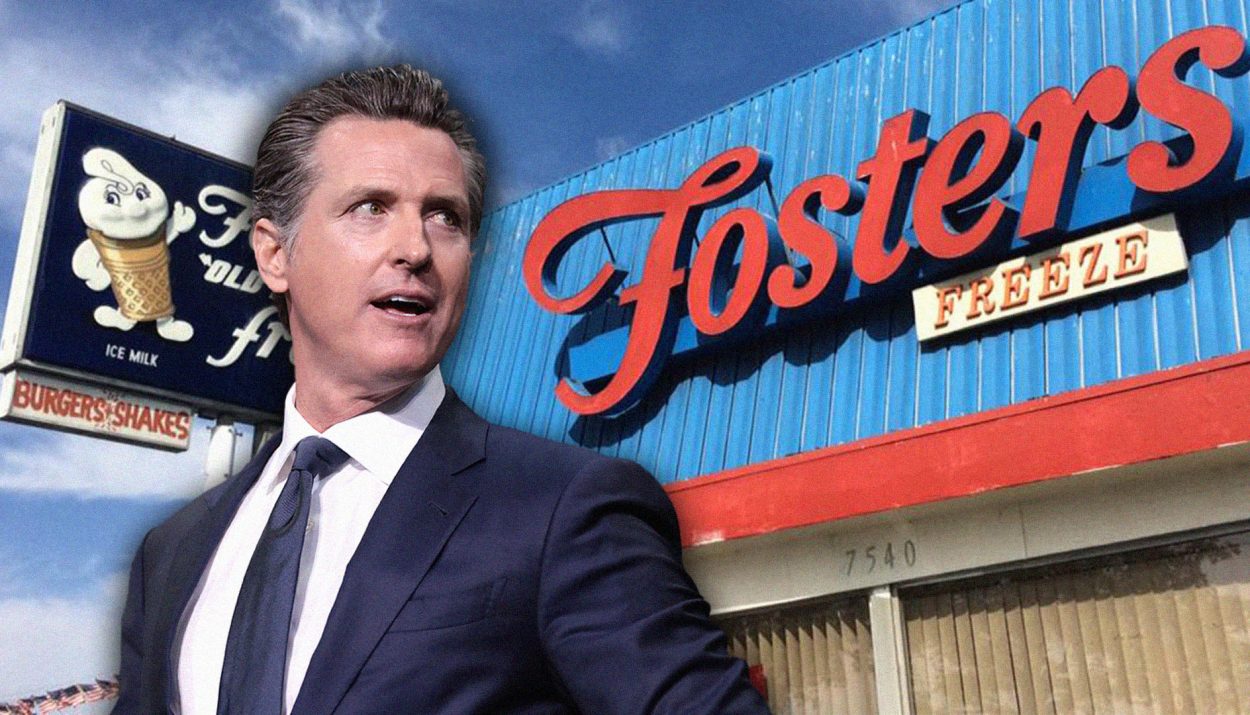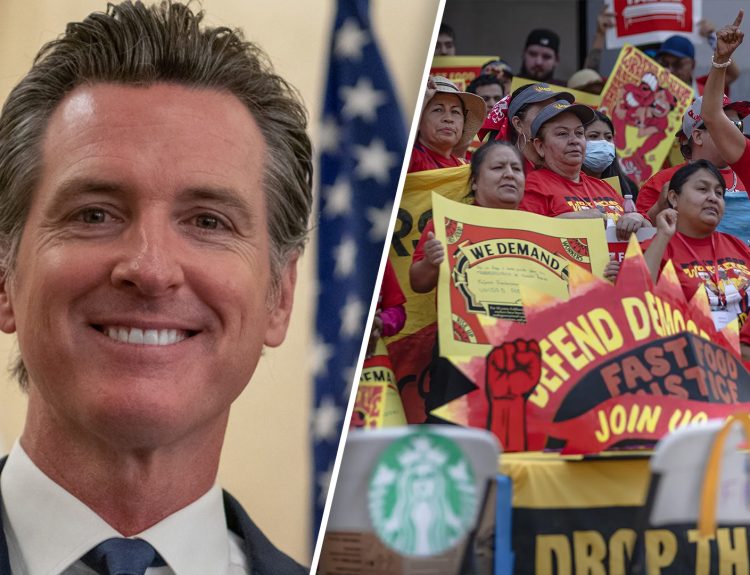After the news of an increase in the price wages of fast food workers just about last week, the sudden closure of Fosters Freeze in Lemoore, California, has left people in shock as the residents grapple with the abrupt loss of a beloved local establishment. The employees arrived for their shift and were welcomed with the devastating news of the restaurant’s closure. The closure is attributed primarily to the recent minimum wage increase.
Closure Announcement Shocks Employees
Fosters Freeze in Lemoore’s employees were left abashed when the restaurant suddenly announced its closing after the announcement of the minimum wage increase for fast food workers.

The unexpected closure caught the employees off guard on a typical workday. The workers disclosed how they arrived for their shifts, expecting a normal work day, but were shocked by the restaurant’s closure. The former assistant general manager Monica Navarro initially thought it was an April Fool’s joke.
What Was Monica Navarro’s Initial Reaction?
Navarro, who had worked up to the assistant GM, recently expressed shock and disappointment at the sudden closure; she stated, “I was so caught off guard. We had no type of notice, no type of warning either.”

Navarro had been an employee at Fosters Freeze for three years and was pursuing a degree at Fresno State while working at the restaurant.
Owner’s Dilemma and Financial Pressures
The owner of Fosters Freeze, Loren Wright, revealed the financial pressure they started to face due to the new wage law. He stated that closing the restaurant was the “last thing” he wanted, but there was no other alternative.

Wright further explained the difficulty of accepting the increased labor costs imposed by the new minimum wage law. He stated, “By Friday night, I knew I was most likely not gonna be able to stay open, but I didn’t want to ruin their Easter Sunday.”
Abrupt Morning Announcement
The news of the closure was too abrupt, as the employees expected a routine day. Their boss, who was at the restaurant, called them Monday morning to open the restaurant.

Soon, they left with the grappling information that it was shut down. There was no prior warning or indication. The workers expressed their feelings of distress and uncertainty about their future job prospects.
Was This an April Fools’ Joke?
Navarro reveals how they all thought the closure announcement was a prank, considering the abruptness of the situation.

One employee shared, “We had gotten a text in the group chat that we were shutting down, and I completely thought it was an April Fool’s joke.” They initially struggled to comprehend the closure’s reality, considering the announcement’s timing on April 1st.
Employee’s Shock and Disappointment
One of their former employees, Jason Boado, expressed his shock and disappointment, recounting their immediate reaction to the news.

Boado, along with his other employees, shared their feeling of shock upon learning of the closure, as they are left frustrated and betrayed, particularly in light of their dedication to the restaurant. Boado shared his feelings, saying, “I was so caught off guard. We had no type of notice, no type of warning either. I mean, the owner had told me Happy Easter.”
Managerial Discussions About the Minimum Wage Impact
Upon discussions with the management and the owner, it was found that the minimum wage increase was the primary reason for the restaurant’s closure, highlighting its budgetary impact on the fast food chain.

Navarro discussed her conversation with management, saying, “He did blame it on the minimum wage increase.” She elaborated on the financial strain, stating, “Although, from my understanding, I think we were exempt from it because of the number of locations that he personally owns.”
What Is the Ambiguity Surrounding Legal Exemptions?
Despite the uncertainties about the legal exemptions, the owner blamed the increase in labor costs resulting from the minimum wage hike.

Although there were potential exemptions, Wright emphasized the overwhelming financial strain imposed by the wage increase. Navarro highlighted the challenges, saying, “The owner had previously told me the $20 minimum wage increase for fast food workers was going to be really hard on him.”
Navarro’s Concerns About the Wage Increase Fallout
In her interview, Navarro voiced her concern over the effectiveness of the minimum wage increase; she fears potential negative repercussions for small businesses similar to what Fosters Freeze faced.

She is skeptical about the increase in the wage and its efficacy in improving working welfare, as she mentioned its adverse effects on small businesses. She questioned the unintended consequences of wage regulation policies on local businesses.
Job Security vs. Higher Wages
The employees expressed a preference for job security over higher wages as they went on to shed light on the complexities of the wage increase in practical terms.

Navarro reflected on employee preferences, “From the people that I spoke to, my employees, we would have rather stayed at the wage that we did have before, just because now we don’t have a job.” The restaurant closure underscored the risks between wage increase and job stability. She added, “Those who are still working in the areas around us that went up to $20 an hour, they got their hours severely cut. And it’s a lot less people working on shifts.”
What’s the Broader Impact on Employment?
The increase in the minimum wage not only led to business closure but also reduced working hours. This wage hike intensified existing challenges in the fast food industry, leading to workforce reductions and operational adjustments to mitigate financial strains.

Navarro discussed, “Restaurant owners have been preparing for the hit by warning of reduced hours, laying off workers, and even replacing them with automation.”
Loss Beyond Employment Targeting the Community
The closure of Fosters Freeze represents a massive loss for the Lemoore community, affecting not only employment but also the social fabric.

The restaurant served as a community gathering place, a prime spot for social connections, and contributed to the local economy beyond its role as an employer. This closure symbolized the loss of a beloved community institution, highlighting business closures’ broader social and economic implications.
Policy Evaluation of Reexamining Wage Laws
The shutting down of Foster Freeze triggers a critical evaluation of policy discussions and their consequences for businesses and communities.

The closure prompted stakeholders to reevaluate the efficacy of minimum wage laws and their impact on small businesses and local economies. This highlighted the need for policymakers to consider the broader implications of wage regulation policies on employment and business viability.
Financial Strain and the Challenges for Small Businesses
The financial strain imposed due to these recent events also sheds light on the challenges small businesses face, leading to tough decisions like closure.

Small companies like Fosters Freeze face the financial strain of minimum wage increases, suggesting a focus on the sustainability of current wage regulation policies.
Why Are the Locals Concerned?
The local’s reactions were of shock as well. The closure elicited widespread concern and reflection within the local community, sparking conversations about the broader implications of minimum wage increases.

The local stakeholders are concerned about the future adverse effects of wage hikes on businesses, employment, and economic growth in the region. They point out, “This was a big win for the labor bosses, but in reality, it hurts those trying to achieve economic mobility.”
Looking Ahead at the Lessons Learned
The closure of the restaurant serves as a cautionary tale, inducing the stakeholders to reevaluate wage regulation approaches and their effects.

It prompted them to consider alternative approaches to wage regulation that balance workers’ welfare as well as business viability. The shutdown of Fosters Freeze underscores the importance of collaborative efforts among policymakers, businesses, and communities to address the challenges they are now facing due to the wage increase.
Initial Announcement Resulted in Shock and Disbelief
Employees initially reacted with disbelief, reflecting on the suddenness of the closure announcement and its impact on their daily routines.

They elicited shock and considered this whole thing to be a joke. The employees were not prepared for the sudden disruption to their employment. They struggled to process the news of the closure, engulfed with the feeling of fear for their future and concerns about the prospects.
What Do the Employees Say?
The employees share their reflections as they express their shock, disappointment, and concerns about the future.

They went on to recount their experiences and emotions in response to the closure, highlighting the profound impact of the sudden loss of their jobs. Their testimonies provide insight into the emotional toll of business closure due to economic pressure and regulatory changes.
Owner’s Explanation About the Financial Realities
The owner’s explanation sheds light on the financial realities of running a small business amidst regulatory changes. Loren Wright provided insights into their financial challenges in meeting increased labor costs while remaining competitive.

The employees discussed the owner’s communication, stating, “He had just immediately said you guys are out of a job; I’m sorry.” He acknowledged the overwhelming financial strain the minimum wage hike imposed, leading to the difficult decision to close the business.
Are There Any Legal Uncertainties?
Despite the legal uncertainties surrounding the exemptions, the restaurant owner stated that the closure was solely due to the wage increase. He went on to share this with his employees beforehand.

He highlighted the challenges in interpreting and complying with regulatory requirements. He emphasized wage increases’ unfair and disproportionate impact on small businesses, regardless of legal classifications.
Economic and Social Impact on Community
The closure has affected the social and economic dynamics of the community, reverberating throughout the local community.

Community members lamented the closure of Fosters Freeze as a loss for the community. Navarro emphasized, “This location has been in business for 35+ years, and Lemoore has been such a good place.”
How to Evaluate the Policy and Consequences?
This news has forced the stakeholders to analyze the consequences of wage regulation policies, as it prompted them to critically evaluate the minimum wage laws’ intended and unintended results.

Policymakers, businesses, and community leaders have engaged in discussions to assess the effectiveness of existing wage regulation policies and explore alternative approaches to address economic challenges.
Financial Pressures and Business Challenges
The financial challenges due to the wage hike add to the already tricky scenario faced by small businesses, leading to tough decisions like closures.

The restaurant closure on Monday sheds light on the pressures confronting small businesses in meeting the increased labor cost while maintaining profitability. Restaurants like Fosters Freeze are left with the tough decision to close operations in response to the economic pressures.
What Does the Public Say?
The public reactions highlight concerns about the impact of the new policy on fast food chains. The public concerns and debates about the effectiveness and consequences of the wage hike are discussed throughout the town.

Navarro talked about community concerns, stating, “What we need to be doing is working to lower living costs and increase opportunities for growth, not the other way around.”






